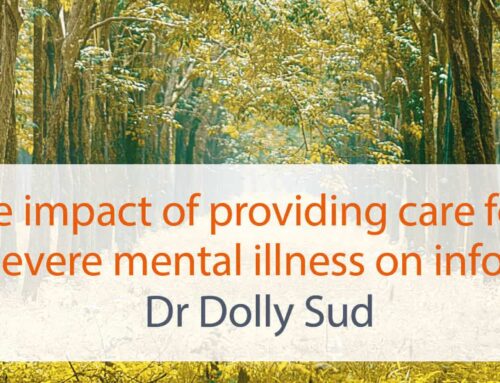
Lisa, Verity and Sheena, Transformation Partners in Health and Care
The team at Transformation Partners in Health and Care is working to ensure the physical needs of those diagnosed with personality disorders are not being overlooked or missed by working to connect primary and secondary care to support both physical and mental health.
The Personality Disorder/ Complex Emotional Needs (PD/CEN) Programme is dedicated to improving the care of those with a diagnosis of personality disorder. We work on the principles of co-production and our membership includes six Lived Experience Practitioners (LXPs), as well as clinical staff from across the London mental health trusts and representatives from VSCO. One of our core aims is to improve the physical health outcomes for people with a diagnosis of personality disorder.
Despite its association with significant morbidity and mortality (mental and physical), personality disorder is not categorized as a Severe Mental Illness (SMI). This means those diagnosed with personality disorder do not qualify for the SMI Register, which is the list of patients for whom GPs are required to do an annual physical health check. This includes blood pressure, Body Mass Index, blood glucose, blood lipids, smoking and alcohol status in recognition of the fact that SMI is associated with a 20-year reduced life expectancy. Those with personality disorder do not qualify, despite often being on the same medication that contributes to poor health outcomes seen in patients with SMI. The team at TPHC have been campaigning and engaging in active outreach as well as partnering with members of our network to highlight this issue and seek equality for all patients.
As part of our work to improve physical health, we have a Primary Care Task and Finish group attended by GPs, clinical staff in services for people with Personality Disorder and LXPs. The group has been exploring issues such as relationship building, the first ‘point of contact’ and GP training. This group also highlights examples of effective co-working between primary and secondary care. One recent example of this is a project carried out at The Waterview Centre – a specialist service for personality disorder run by the Central and North West London NHS Foundation Trust.
The aim of the project was to integrate physical health into clinical practice, as diagnostically those with a diagnosis of personality disorder do not qualify for yearly physical health checks. This required receiving a baseline update of physical health monitoring measures from GPs (same measures as for SMI check) as well as general physical health information, and then using these to inform conversations about physical health. The GP for each person entering an 18-month therapy (MBT or DBT) was sent a request for information to be discussed at their scheduled 6 week and 12 month reviews. This required GP support to complete annual physical health reviews prior to the reviews.
Another aim of the intervention was to improve communication and relationships, as access to health services is a significant issue often related to – but not limited to – the interpersonal difficulties experienced, and this includes with GPs. This project aimed to improve these relationships and build links both between individuals and their GP, and also between the service and local GP practices. Despite not always being the most suitable service for physical examination, investigations or interventions, GPs remain the patient’s most frequent point of contact with services.
At the start of the project in January 2022, there was some concern that it would be difficult for busy GPs to complete the requests. However, initial audits demonstrated a 95% return. These informed explicit conversations around physical health, which have already resulted in improved physical health care and referrals to relevant services e.g. to dieticians.
Another benefit has been uncovering difficulties in engaging with physical health services where they arise. For example, one patient struggled to attend dermatology due to the fear of exposing self-harm scars on her arms. Without the sharing of information from the GP, the team would not have known about her challenges to attend the appointments.
“I struggle with self-esteem regarding physical issues which usually require examinations. Due to fear of judgment and shame I was avoiding my first appointment with dermatology. I postponed the dates up to the last chance. But I did it, I went and had those photos of suspicious moles taken. That was due to encouragement from not only the staff at Waterview but also my peers in the group.” – Service user
Some staff were unsure about widening mental health conversations to include physical health care and whether this was within the remit of mental health services, particularly one delivering mostly psychological interventions. This is something we worked on as a team and their perspective has changed as the many benefits emerged.
This project is an excellent example of how a relatively simple intervention can make a significant difference to an individual’s physical health, relationship with their GP and access to services. TPCH is committed to continuing to promote projects like this and raising awareness of such issues – we are currently developing an online training course for GPs.
For more information, please contact england.healthylondon@nhs.net






